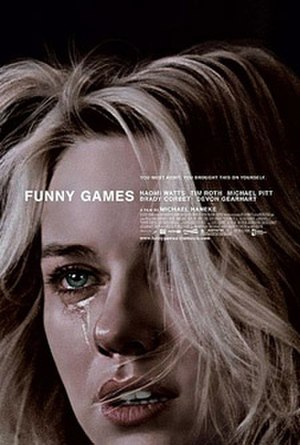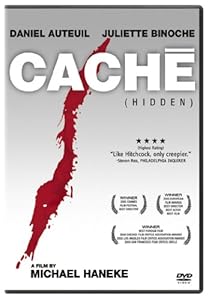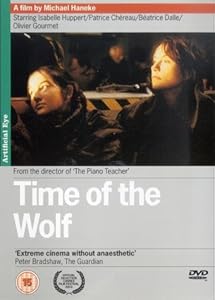Monday, March 11, 2013
My Pen is Like...
Monday, March 4, 2013
March 4, 2010
Thursday, April 8, 2010
Quick Review: Tomato Red by Daniel Woodrell
Tomato Red

Thursday, April 1, 2010
Twins!! Predictions!!
The team seems to have put together the best club in recent memory this year and I think the Central is theirs for the taking. Perhaps I'm too optimistic but I think this is going to be a great year! These are my predictions for the coming year, feel free to list yours in the comments, I'd like to see if others are as positive about their chances as I am.
Twins MVP: Joe Mauer
This is easy. We all know he's the best catcher in baseball and it's not even close. He's one of the best all around hitters as well. He's worth every penny in that new contract
Rookie of the Year: Ben Revere
I just can't see the Twins playing this whole season without getting a second true centerfielder on the roster. Right now their outfield defense is looking pretty terrible and that's with Span (a pretty good fielder) on the field. On Span's days off they want to put Cuddyer in center? That has to be easily the worst defensive outfield in baseball with three far below average defensive players.
Revere looks to be a good player and I expect him to be on the team sooner rather than later.
3 Keys for the Twins:
1. Denard Span
As I said above, the biggest weak spot for the team this year is the outfield defense which is painful. An injury to Span would be catastrophic to the team. He's not their best player but he is playing an important position and one that the Twins are remarkably thin at. Span had a very good year last year and I think he is due for a breakout year, fresh off signing a new contract and at 26 years old he should be entering his prime right about now.
2. The New Guys
We need Hardy and Hudson to perform up to the levels that are expected. A second bad season in a row (which I don't expect) from Hardy or a big dropoff from Hudson would be tough to work through.
3. Francisco Liriano
He needs to be at least an average MLB pitcher and I think the Twins will be in good shape. If he gets anywhere near where he was his rookie season the could easily be one of the best teams in the AL.
Twins Record/Standings: I'm going with 91-71 for first place in the division. I think (hope?) they will have a solid, if not prohibitive, grip on the Central for most of the season and leave the White Sox and Tigers fighting it out for second.
That's all I've got. What do you think?
Thursday, June 25, 2009
Thursday, June 18, 2009
Artists I Like: Michael Haneke (pretentiousness warning!)
 Image via Wikipedia
Image via Wikipedia
 Image by Getty Images via Daylife
Image by Getty Images via Daylife
Michael Haneke is an Austrian director who has grown famous as a director of films which often are aimed at pointing out what he perceives to be problems and failures in modern society. He often shows the banality and tediousness of suburban life and intersperses that with extreme violence. This blend of boredom with terror sometimes leads to very conflicting critiques of his work. I have read often on the internet observations from "real people" who watched his films and felt they were terribly boring, "nothing happens" is a phrase you see over and over when reading user reviews on Netflix for example. On the other hand, professional critics, those who don't like his films anyway, often describe his films as overly violent, The New York Times described Funny Games as "a sophisticated act of cinema sadism." It's these exact same extremes that have made me a huge admirer of his work.
My introduction to his work was the U.S. version of Funny Games. This version of the film is a shot for shot remake of an earlier, Austrian one. The movie is the story of a well-to-do family visiting their lake house who are accosted by a couple of seemingly upper class young men who throughout the movie terrorize the family. The plot is similar to a number of "home invasion" films such as The Strangers or Them but Haneke's goal and style are much different. There is no onscreen violence in Funny Games at all, aside from one very important scene late in the movie but the effect of the violence when it does happen (offscreen) is chilling. The focus is on the people being hurt, their faces as they watch family members being terrorized or their reactions after the violence occurs. There are no action sequences, violence happens in short bursts but the impact lasts for several minutes after. The violence is never explained either, the antagonists throughout the story offer stories a few times but always immediately contradict themselves just moments later with an alternate reason for their terrible acts. In the end viewers have more questions than answers and are not offered a nice wrap-up that is normally given at the end of a thriller or horror movie.
Initially after seeing the movie I wasn't sure what to think and really didn't think I liked it at all. It took me several days to realize that I couldn't stop thinking about it and the effect it had on me. Funny Games is a film that is aiming to inspire a different sort of emotion in the viewer than your typical film. Generally speaking, movies are looking to amuse or thrill or possibly shock, Funny Games inspires a feeling of dread and, oddly, guilt. It's this difference that makes Haneke one of the most artistically successful filmmakers in the world. After having my interest piqued by Funny Games my wife and I decided to seek out a few other Haneke films. We started with the original version which had been made 10 years earlier in Austria. The original version is shot for shot the same movie as the American one and because this movie was always intended to be a critique of American cinema I prefer the U.S. version but both are great and even after the seeing the movie a second time I had almost the same reaction as the first time.
 Cover of Cache (Hidden)
Cover of Cache (Hidden)
Next up we watched Cache (Hidden) which was, at the time, his most recent Austrian film. Like Funny Games, Cache is, on the surface, a straight forward thriller and really shows off Haneke's skills in cinematagrophy and building tension masterfully. The plot of Cache involves another terrorized family of three who discover one day, via a videotape left on their doorstep, that someone is watching them. Not long after the video tape the family begins receiving drawings that take the husband back to some events during his childhood.
Here again, Haneke is taking what could have been a relatively typical movie and inverting our expectations. The idea of who is the protagonist and antagonist in this film is a tough one as it flip flops a couple times during the movie. The last scene in particular is mysterious and casts doubts on nearly everything that had happened up to that point. Cache is easily Haneke's most critically acclaimed movie and it's easy to see why, everything about it executed to perfection. It's his best "looking" film with a great cast and, in a rarity for Haneke, it actually has a plot and a story to tell. Cache is presently being remade for American audiences and we'll see how that turns out.
We watched Le Temps Du Loup next which really reminded me more than anything of The Road, the novel by Cormac McCarthy. (Just to be clear though Le Temps came out years before The Road, it just so happens I had read The Road first). It's a dark, depressing story (that part could probably go without saying for Haneke) set in a post-apocalyptic future. A mother and father are attempting to navigate this new world with their two children and the story deals with their everyday life just trying to survive. This film is a good example of what a lot of people
 Cover of Le Temps du loup [Region 2]
Cover of Le Temps du loup [Region 2]
The Seventh Continent is Haneke's first movie but the last I watched and here again he is dealing with another relatively well-to-do family who are terrorized. The difference here is that they are not being terrorized by any outside forces, rather they are being gradually beat down over the course of three years by the sheer mundanity of their own lives. There are endless shots of members of the family eating breakfast or shopping or going through the car wash with little or no dialogue. Eventually small cracks start to appear, the mother begins crying for seemingly no reason for example. The family falls deeper and deeper into depression or "emotional glaciation" as I've read Haneke say in interviews about his early films. The movie builds to a climax which is in no way surprising but is still one of the most terrifying things I have ever seen in a movie. Haneke states in his description of The Seventh Continent that it is "a story of mental short-sightedness" which makes sense. His characters don't see any way out of their emotional rut aside from the extreme route they choose.
There are other Haneke films I've yet to see. I will work my way through them slowly, I would never subject anyone to a Haneke marathon. Just in the past couple weeks a new Haneke film was shown at Cannes, The White Ribbon, which won the Palme d'Or. If you've seen any Haneke let me know what you thought and if you haven't give it a shot some afternoon when you feel like something a little different, I can guarantee you won't have fun but you will definitely have an interesting experience.
Books of 2009 so far...continued
Kafka on the Shore by Haruki Murakami
Murakami's books always have a dreamlike tone, it seems half the action takes place while the main characters are sleeping. Kafka, of the books I've read, makes the best use of this type of writing. Kafka on the Shore is the story of Kafka Tomura a 16 year old boy who has run away from home in order to escape an incestuous and murderous prophecy foretold by his father. Kafka runs to a small town in Japan where he meets a colorful cast of characters including a hemophiliac transvestite and a ghost of a young girl who may or may not be his mother. The book is intentionally vague with the story and messages but to me it is about destiny and our ability to choose our own way in life. There are parts of the book that, to me, were inexplicable but that did nothing to take away from the fact that the writing is great and even when I don't completely understand a characters actions I am still able to enjoy the ride.
Tree of Smoke by Denis Johnson
I've already reviewed this book on this blog so I will just leave what I've already written. Denis Johnson is one of my favorites.
Atmospheric Disturbances by Rivka Galchen
I just finished this book very recently and I absolutely loved it. Galchen's book is often compared to Murakami and like in Kafka above it's not always perfectly clear what exactly is happening in this book. There is a good reason for this however as it is written in the first person from the point of view of a man who is possibly insane. I have my own ideas about what is happening here but, regardless of that, what made this book work so much for me were the characters. I don't know what it says about me that I was able to empathize with the main character, Leo Liebenstein, more than just about any character in any book I've ever read. He is going crazy but in a way that seems perfectly logical to me, it was riveting and slightly scary to read about him falling further and further into his obsessions and into his own head. You really should read this book, it's a quick read and is highly entertaining.
2666 by Roberto Bolano
2666 is easily the best book I've read this year. It's quite a time investment, the version I received as a gift came as three separate paperback books. It took me a few months to read as I read one of the books then a couple other books and then the next which was a great way to read this book in my opinion. The book tells the stories of a large cast of characters who all either have or develop ties to the fictional city of Santa Teresa in Mexico. Santa Teresa in the novel is a stand-in for the real city of Juarez where, in the last twenty years, over a thousand women have been murdered in unsolved crimes. The book explores the madness that could lead to such a situation. Bolano writes about a group of critics who are obsessed with a reclusive writer, Achimboldi, who they believe is in Santa Teresa. They travel to the city to find him and all have different reactions to the atmosphere of degradation in the city and the cheapness of life there. Also in the book are stories of a professor in the city, an american reporter who visits to cover a boxing match and the police in the city who work in a dysfunctional system that really, for many reasons, has no interest in ever solving the crimes. Lastly, there is a section about Archimboldi, the mysterious writer mentioned above that (sort of) serves to tie the whole thing together.
I loved every section of this book, it's absolutely full of amazing characters and great writing. The Part About the Crimes in particular is fantastic and unlike anything I've ever read. This section is written in a police blotter type style with cold hard facts about each of the murders laid out in shocking detail interspersed with scenes of the personal lives of the police who are working the crimes and the suspects in the crimes.
2666 is a great novel that, I believe, will stand the test of time as a classic and I can't recommend it highly enough.
![Reblog this post [with Zemanta]](http://img.zemanta.com/reblog_c.png?x-id=aff1f56b-435d-4b21-9059-66db8854cdea)



